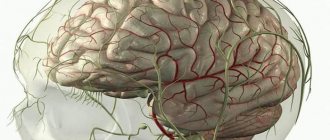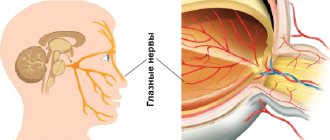Connected by one goal, bound by one chain...
Body and psyche are connected like lovebirds.
Every change inside is reflected outside. And, conversely, everything external turns into an internal state. It is not for nothing that there is such a direction in medicine as psychosomatics, which tries to establish a clear connection between the course of mental processes and their influence on the physiological state of a person. In response to any stressful stimulus, the body responds with a defensive reaction - muscle tension. The body tenses, the soul relaxes. If these situations are in the nature of rare outbreaks, then everything goes well for the body.
The degeneration of random psychotraumas into prolonged stress causes psychosomatic diseases that are so difficult to diagnose. Physical ailments rise in full force, and their psychological roots are so skillfully disguised that doctors spend years treating the effects, and not the cause, which cannot be easily reached.
Processes in the body proceed smoothly, rhythmically, and are clearly regulated by the central nervous system. But in the presence of a chronic focus of excitation in the brain, which is caused by negative emotions, the nervous system, as it were, relieves itself of the functions of commander-in-chief.
The internal brake is activated, and the body, left without the main coordinator (nervous system), begins to slowly fall apart and decompose, like an army abandoned by its commander.
All systems and organs stop working in the correct mode. The program malfunctions, and the person suddenly discovers that he has cardiac, endocrine, gastrointestinal, etc. disease.
While medicine finds out the causes of the breakdown, the patient loses appetite, sleep, vigor, energy, and performance. The ability and desire to enjoy life disappears; minor inconveniences over time develop into big problems.
The suffering of the body is accompanied by the suffering of the psyche. A person exists against a background of chronic fatigue, irritation, vague anxiety and anxiety.
All this in the near future may result in serious neurotic disorders, which will radically affect the quality of life. It will change and, as is clear, not for the better.
The question “why strengthen your nerves” is clear as day. Mental nerves need the same care and training as the body. Then the person will be harmoniously healthy (physically and mentally). And health is a guarantee of a full, active and productive life.
There are a great many methods for strengthening the nervous system and psyche, and they can be roughly divided into 2 groups: training for the body and training for the psyche. Let's focus on the first group.
Rebooting the nervous system - breathing exercises to calm the psyche and nerves:
Read online “Healthy Nervous System”
Paul S. Bragg
"NERVE FORCE"
(collection)
"Building Powerful Nerve Force"
(1969)
In writing this book, I did not intend to create a classic work in the field of literature. On the contrary, I have deliberately used concise language so that the facts I present will be deeply imprinted in the reader's memory.
We live in an age of extraordinary nervous tension, which is slowly but surely undermining all the foundations of our existence.
And if we do not take certain steps NOW to overcome this evil, in a few generations we may come to a complete nervous collapse.
When I say WE, I mean primarily the American nation. Although there are many victims of nerve disorder throughout the world, nowhere do men and women suffer from it more than here.
My deep interest in this subject and the reason why I have devoted so much time and energy to the culture of nerves can be explained by evolution - the evolution of views, theories and practices on the culture of health. I decided to definitely study this subject, since I was born with very sensitive nerves.
At the age of 18, having recovered from tuberculosis, I became intensely interested in the culture of health and physical culture and determined to achieve the highest physical perfection that nature could allow. The evolution of my study and practice of a culture of health began with exercise and sports, because I believed, like many people, that muscular strength equals health. But as the fallacies of this terrible theory began to take their toll on me, I began to focus on scientific nutrition, deep breathing and systematically building my body.
I have found that the greatest driving force in the body is the nerves. This is where the weakest and most sensitive place in the human body is. And this is where we must create vitality.
This position is not just a theory. I supervise the nutritional hygiene and personal programs of over 1,000 healthy students each year, in addition to the hundreds of students who attend my public classes. As my experience expands, the correctness of my teaching becomes more apparent.
I can state with full knowledge that the facts presented in this book cannot be questioned.
THE SECRET OF NERVE STRENGTH
Nervous force is the source of all life. Life goes through our nerves, never forget this! When you have nerve power, you are full of enthusiasm and happiness, health and ambition.
You overcome all difficulties and are ready to accept every challenge of fate, because you are confident that your nervous strength will cope with them.
You cannot defeat a man full of nervous energy. He will strive again and again for the goal, not noticing how often he has failed - and in the end he will win. 5% of people control and lead humanity - and the leading one in them is nervous force.
Your health, strength, vitality and patience are measured by direct nerve force.
. It gives you that reserve of strength that makes life full of success and charm. There are enough people in the world who have the intelligence and ability to rise to the top. But they do not have the necessary nervous force to push them forward.
A woman's attractiveness, charm and liveliness are also directly related to the nervous strength that makes her radiate health.
Nervous strength and physical health are intrinsically linked. Your body is a complex machine. Nervous force is its driving force. But its energy depends, in turn, on the harmonious activity of the vital organs. From the lungs and heart, blood flows through an extensive circulatory system into every cell and from them carries nutrition throughout the body. If any organ is not functioning well, the blood will not contain the elements necessary to create nerve force. Your stomach should be able to digest well. The excretory organs - the intestines, lungs, kidneys and skin - must have enormous nerve force to function successfully. The spleen, liver and all blood-forming organs must work harmoniously. If you get up every morning feeling sluggish and tired, if you feel like the years are dragging on, if the future seems hopeless and you feel unhappy, then something is wrong with your nervous system. Your nervous strength is a minus instead of a plus.
There is only one way - restructuring the nervous force.
The body is a self-healing organism if you give it the opportunity to follow the path of nature. Unfortunately, today most people, especially Americans, uselessly waste their nervous energy and whip up their nerves with various doping agents in an attempt to balance their forces. And in this way they only injure the body.
“NERVES” - A SUBSTANT AND DANGEROUS CONDITION THAT UNDERMINES THE VITALITY OF THE AMERICAN NATION
“Nerves” - we hear it everywhere. The doctor says to his patient: “It was your nerves that were going wrong.” Sensitive women also complain about their nerves. Every day at work you encounter people with nervous disorders. You hear from parents: “I can’t punish a child, he has nerves”...
Strengthen the body to calm the nerves and psyche
You can strengthen your body, nerves and psyche if you follow these recommendations:
- You need to train your body by increasing your level of physical activity . Movement is life. This is easy to see using the example of the deceased. As Vysotsky sang: “Everyone ran away from the noise and scream, only the dead man did not run away.” All living things must move, and as actively as possible. During running or vigorous walking, all the stress hormones we have accumulated are intensively consumed by the body. They are stress hormones to help run away from fear and danger, and not lie in their way (or on the sofa).
- Nutrition is a matter of principle . Correct! Food is a responsible matter and should not be approached in a hurry. The principle of nutrition for the glory of health is to provide the body with all the necessary substances, vitamins, minerals, amino acids. Just filling your stomach with whatever you have to on the go is wrong. And the echo of spells: “don’t overeat”, “don’t eat at night”, “don’t overuse” never stops in the air.
- Be gone, unhealthy addictions . Instead of breakfast - coffee with a cigarette... This ritual makes you wake up in the morning, serving as a light tonic. You can stop there. And it’s best to completely quit smoking, drinking, using stimulants and other destructive habits. The short exciting effect of nicotine is replaced by a phase of sharp inhibition. To get a new portion of vigor and tone the brain, one cigarette is followed by another, a third... But the excitation phase is becoming shorter and shorter, and the inhibition phase is longer. At a certain stage, the body no longer reacts with a flash of excitement. Instead of a short tonic charge, the smoker begins to experience fatigue, irritation, weakness and drowsiness. It's the same with coffee. After the next portion, it no longer gives a boost of energy, but takes away the last one.
- Hardening and winter swimming . Water is an indispensable condition for existence. The aquatic environment offers dozens of ways to strengthen the nervous system. Hardening creates an “impenetrable” immunity, invigorates, forces the body to “wake up” and withdraw its reserves. Winter swimming is an extreme form of hardening. It seems strange, but “walruses” are surprisingly healthy and balanced people. Such a powerful physiological stress, which the body receives when immersed in an ice hole, will launch all your armored trains standing on the sidings.
- Baths and saunas are a recognized method for cleansing the body and soul. High temperatures, hot steam in combination with a birch broom very quickly cure any blues, and the grateful body responds with pleasant languor, relaxation and a cleared consciousness.
- In water you need not only to swim, harden and steam. You also need to drink it correctly and in sufficient quantities. The 8 glasses method is widely known. If you believe the primary sources, then exactly this volume of water should pass through the channels of our body per day, washing it, clearing mucus from the intestinal walls, removing decay products and organizing the correct water balance.
- Massage, self-massage is the strongest remedy against all sorts of ailments. The trouble is that the body gradually loses flexibility and joint mobility. Metabolic processes go poorly, stagnation and tension appear in the muscles. Powerful self-massage until you break a sweat will perfectly disperse stagnant blood, enhance metabolic processes, and give vivacity and a sea of energy.
- Sleeping and rest area . Deep, healthy sleep will help strengthen the nervous system. During sleep, the body is restored, cells are renewed, and the brain rests. Lack of sleep, shallow sleep, frequent awakenings, early awakenings quickly weaken the nervous system. A person becomes lethargic, apathetic, dull, has difficulty thinking and concentrating. In communication, lack of sleep manifests itself in outbreaks of irritation and aggression. You need to sleep with all sources of noise turned off: TV, telephone, radio, computer. The sleeping room should be well ventilated. Coffee and smoking breaks before bed will destroy your good intentions, because... have the ability to overexcite the nervous system. Sleep in the dark. Darkness is a condition for the production of melatonin (the hormone of calm and sleep). If you are already used to falling asleep to the sound and light of the TV, get out of the habit. Screen flickering and flashes of light interfere with the production of the sleepy hormone.
- Nature is another natural helper in creating a strong psyche and a healthy nervous system. The calmest and most harmonious people are tourists of all stripes. Hiking, water tourism, and cycling are a wonderful and natural way to relax the nervous system. Nature heals itself. All you have to do is get out of the city, sit by the river and watch the sun reflect in the water. You will return home peaceful and spiritualized. Communication with nature can not only easily recreate the psyche, but also treat severe physical ailments.
How to strengthen the nervous system and psyche, stop being nervous over trifles
Nervousness, irritability, internal tension, irritable weakness, anxiety, sleep disturbances, decreased performance - these are the flowers that almost each of us encounters with varying frequency.
Not everyone gets berries in the form of chronic diseases of the nervous system, internal organs and psyche, narrowing of social contacts or isolation, but they still exist. And all this vinaigrette, seasoned with the light, crazy flair of modern life, is now commonly blamed on chronic stress. Let's try to figure out what it really is, what it is eaten with, and how to get rid of it effectively and painlessly.
When love leaves, the blues remain
- During the time of the ancient Greeks and other Hippocrates and Galens, all human behavioral characteristics were explained by the presence of a predominance of one of the four bodily fluids, which determined the type of temperament. There is a lot of lymph in a person - he is slow and calm, bile predominates - he is aggressive and hysterical if it is yellow or gloomy and gloomy if it is black. And only blood makes its owner cheerful and active.
- Later, everyone suffered from spleen and blues interspersed with hysterical fits. From them they went to the waters, shot themselves, went to the active army and drowned themselves. What serfs, European guild workers and American Indians did at this time in cases of life difficulties is not known for certain. It seems they drank bitters and smoked in their free time from back-breaking plowing.
- A little later, enterprising psychiatrists Freud and Jung explained everything by the suppression of the ego by a ruthless environment and public opinion and took up the emancipation of the suffering Self, one at great expense, and the second at a very high cost, successfully covering the whole of Europe with their psychoanalysis.
- The subsequent world wars, however, proved that in comparison with the world revolution, female hysteria was complete nonsense, and led scientists to a more detailed study of the theory of stress, since the representative sample of those who came from the war fields was very decent for a whole century.
What kind of bitch nerves do they have, and why don’t we have these nerves?
The theory of stress tells us that the body defends itself from any external factor that we perceive as an irritant and a violator of the constancy of our internal environment by mobilizing all regulatory systems. Since it is vital, first of all, to avoid death, the system of catecholamines (adrenaline and norepinephrine) and cortisol is activated, working within the framework of the “fight-flight” paradigm. It is responsible for raising blood pressure, increasing heart rate and breathing.
The meaning of stress is to allow the body to adapt to the changed external world and maintain the constancy of the internal environment, even against the background of infection or injury, even against the background of negative emotional influence from the outside. Whether you're sick with the flu or your boss yelled at you at work, your body needs to mobilize some of its potential to restore balance. That is, stress is not just emotional excitement or irritation, but an adaptive mechanism.
Chronic stress leads to depletion of the body's adaptive capabilities. The system starts to glitch. Instead of an adequate prompt response, paradoxical reactions appear:
- heartbeat at rest from bad thoughts
- or shortness of breath from a heavy foreboding,
- heart rhythm disturbances,
- sweating,
- fear of death,
- pallor of the skin from habitual exercise,
- muscle tension at rest,
- dry mouth,
- spasms in the stomach and intestines.
The main thing here is not to miss the signs of real diseases, which are practically indistinguishable from vegetative storms without additional diagnostic methods. But if everything has been checked more than once, and the suspicion of illness still persists, obsessive-compulsive neurosis is highly likely to occur.
Consequences of stress
- subjective (anxiety, aggression, weakness, fatigue, low self-esteem, bad mood),
- physiological (rising blood sugar, blood pressure, dilated pupils, feeling hot or cold),
- behavioral (risk of accidents, alcoholism, emotional outbursts, substance abuse, smoking, overeating), cognitive (weakened attention, decreased mental performance).
The mechanisms of stress development, adaptation to it, and failure of adaptive capabilities are almost identical for all people.
Only the threshold of perception is different. What is an ordinary trifle for one person is a whole tragedy for another.
Variants of group stress are also possible, when groups of people find themselves in unfavorable similar conditions. Moreover, the higher the load to achieve adaptation to difficult conditions, the more likely people react to it.
The study of stress resistance of different population groups and individuals allows for predictive diagnostics, identifying those who, under stress, are likely to react inappropriately or atypically and who are not shown types of work with high requirements for stress resistance.
More than half of the Russian population constantly live under stress. Up to 80% of them develop chronic fatigue syndrome and feel unwell in the morning, have problems falling asleep and sleeping at night, and have difficulty coping with physical and mental stress during the day
Physical manifestations of stress
- Decreased ability to concentrate.
- Irritability, bad mood.
- Sleep disorders.
- Growing appetite.
- Deterioration of organizational abilities (fussiness, absent-mindedness).
- Lethargy, apathy, fatigue.
- Sexual disorders.
- Increased anxiety.
- A feeling of an insurmountable obstacle or crisis.
- Feeling out of control.
- Poor health (muscle pain, headache, heartburn, increased blood pressure).
And now about panic
A panic attack is a rather painful complex of manifestations of autonomic disorders, which can be provoked by anything. That is, it is an unreasonable fear, triggered without objective signs of danger and in the absence of real pathologies of internal organs. The most popular triggers are: being in a cramped or stuffy room, climbing to a height, and indeed any discomfort in the body.
Predisposed to the following attacks:
- genetics,
- psychotype,
- emotional stress,
- chronic stress,
- experience of using psychotropic drugs.
At the moment of panic, a person may experience a feeling of lack of air, palpitations, pressing pain in the chest without connection with the load, trembling, sweating, heat or cold, tingling of the skin or crawling goosebumps, dizziness, nausea, a feeling of the unreality of what is happening. The fear of death from heart problems or stroke comes first.
What to do
- If chest pain, palpitations, sweat, shortness of breath occur for the first time, a call to the emergency room is indicated to rule out a life-threatening condition.
- If episodes recur, it is wise to consult a physician to rule out chronic diseases of the heart, lungs, or endocrine system.
- In the absence of such pathologies, do not neglect a visit to a psychotherapist or psychiatrist.
- Stop waiting for an attack, since listening to yourself responds to any slightest irritant with a release of adrenaline into the blood, which triggers panic.
- Taking sedatives or beta blockers that slow down the heart rate is a way to only temporarily eliminate symptoms. They do not fight the cause of panic, and besides, sedatives, for example, Corvalol, which contains the barbiturate phenobarbital, are easy to get used to.
- In severe cases, specialists prescribe antidepressants. It is better not to start taking tranquilizers that can cause severe addiction after only 3 weeks of use.
- Cognitive-behavioral psychotherapy and auto-training should be aimed at creating attitudes that a panic attack is not dangerous to physical health and it is quite difficult to die in the process. By supporting all this with breathing exercises, walking and meditation, you can achieve quite acceptable results.
Physiology
If you look at a person from the point of view of primitivism and analyze him as a visual biological model, it will become obvious that the nervous and endocrine systems are simultaneously responsible for his full functioning in a changing external environment.
The nervous system is represented by:
- Central part (brain and spinal cord). In the cerebral cortex, the neurotransmitters dopamine and serotonin are responsible for emotionality and mood.
- Periphery in the form of nerves and nerve ganglia. Here the reception of external irritations, their implementation, processing and issuance of a response occurs. The main types of response are the conduction of an electrical impulse along a nerve fiber and a chemical process in synapses with the participation of the neurotransmitter acetylcholine.
- There is also a vegetative part - these are like automatic transmissions or autopilots for the heart, breathing, and digestion. Only yogis can control this with the power of thought, but an ordinary healthy citizen does not need this.
The endocrine system, with the help of hormones entering the blood, regulates body temperature, energy, plastic metabolism, the functioning of the cardiovascular, reproductive, and digestive systems, and also interferes well with the functioning of the brain. Emotions and nervous tension are most actively influenced by adrenal hormones (adrenaline, norepinephrine, which are also neurotransmitters, and cortisol), sex hormones, and thyroid hormones.
Therefore, if a person complains of excessive irritability, mood instability, especially in combination with fatigue, sweating, weight loss, he is checked for the level of thyroid-stimulating hormone (TSH alone or in combination with T4-thyroxine) to exclude increased activity of the thyroid gland (hyperthyroidism).
For women, fluctuations in the background of sex hormones are a completely separate issue.
And this is not only the notorious PMS, which turns a quiet office woman, an easy-going girl or a respectable mother of a family into a fury, sobbing and screaming at the same time, but also the emotional instability of pregnant women and irritability, coupled with vegetative symptoms in women during menopause. By the way, not only women in menopause, but also men in a testosterone crisis are at risk of becoming characters in jokes. Their moods can also change ten times a day, and this is not at all a sign of their bad character.
- Dopamine
Its peak, as all readers of women's magazines know, for women occurs in the middle of the cycle - this is generally a paradoxical thing. On the one hand, if a lot of it is produced in those parts of the cerebral cortex that are responsible for reward motivation, then the person is overwhelmed with inspiration and can work tirelessly. If in the insula, which covers part of the frontal and parietal lobes and is responsible for emotions, the person experiences an aversion to all types of physical or mental labor. That is, a low level of dopamine in general is a lack of anticipation of joy as such from any type of activity, from making money to sex. In other words, dopamine is the anticipation of a high and the engine of creative progress, interest in learning and conquering new frontiers.
Prolactin is responsible for the high itself, and oxytocin is responsible for attachment. Dopamine is the opposite of prolactin, and when there is a lot of it, a person begins to look for adventure and his brakes fail.
It’s interesting how neurotransmitters work in the process of emotional burnout, when an enthusiast who is literally burning at work or in any field of activity is left with only horns and legs emotionally, and he himself becomes first apathetic and then completely aggressive at the mere suggestion of doing something once a favorite activity.
- First, at the stage of interest in a new business, a dopamine surge is formed, provoking enthusiasm.
- Then, when the novelty has worn off, a smooth dopamine plateau allows you to plow without stopping and get everything done. When work consumes all our time, and there are no new impressions, positive emotions, and time for sleep, food, and communication with loved ones is saved, dopamine tells us “bye,” and first a slight, and then more and more confident irritation with the world around us appears. Adrenaline and cortisol levels are high here.
- And then comes drowsiness, a sharp decrease in working capacity, and a feeling of anxiety due to loss of control over the situation.
- Later, intolerance, aggression, and indiscipline are added to this. And these are already undoubted signs of exhaustion.
- Serotonin
But the feeling of quiet happiness is already serotonin, this is prolonged satisfaction with life. It is serotonin that says that everything is fine and let it always last as it is. Serotonin is blocked by dopamine. And chronic stress blocks both mediators.
Therefore, after a breakup, the one who switched to a new object, impressions or interests is warmed by the rays of dopamine and on the rise, while the one who remained in the position of the sufferer has lost both serotonin well-being and dopamine short-term anticipation of pleasure.
Goals and objectives
We needed the entire previous dreary excursion into neurophysiology solely in order to clearly define the strategy and tactics in the fight for calm nerves and a balanced nervous system.
The goal is already clear to us: to calm down and stop being nervous over trifles. It remains to show persistence in achieving it.
Leaving outside the scope of all issues related to major psychiatry, let's talk about the hygiene of the nervous and endocrine systems, as well as practical skills for bringing your emotions and psychological status into a divine form.
Statistical calculation
Dear Russians, get rid of stress with the following simple and affordable folk remedies:
- 46% watch TV,
- 43% listen to music,
- wash down stress with about 20% alcohol,
- seize -16%,
- relieve tension through sports 12%,
- sex – 9%, while more than half of those surveyed in sociological surveys note the negative impact of stress on their sex life.
How not to destroy the endocrine system ahead of time
Like other adherents of a healthy lifestyle, we strongly recommend not to test your body’s strength, but to wisely exploit the resources given at birth. Of course, if you inherited early menopause or a low level of production of endogenous opiates, the person is a victim of circumstances and is forced to make more efforts than others to live a full life. But, if initially everything with the hormones was in perfect order, there is no need to do everything to make the system fail.
- Get enough sleep
Tales about Napoleon, who slept for four hours and was distinguished by his bright head and remarkable capacity for work, should not confuse you. Our hormones are produced in a certain daily regime and are quite dependent on the time of day. Focus on your own needs (see why it is so important to maintain a daily routine). If your body is screaming that getting up at six in the morning is unrealistic, try to understand it: perhaps your adrenal glands produce cortisol not at 4-5 in the morning, like a person who easily gets up at half past six, but with a delay of couple of hours. This is very common for those receiving glucocorticosteroid therapy.
Lack of sleep of just one hour a day in the short term reduces the ability to concentrate and remember information. In the long term, it threatens problems with cerebral circulation, the cardiovascular system, diabetes mellitus, and immune disorders (see lack of sleep increases the risk of heart attack and stroke).
In 2007, a University of California study was published on the effects of lack of sleep on emotionality. The results were disappointing: the emotional centers of the brain of the sleep-deprived subjects reacted 60% more actively to the negative images shown. That is, lack of sleep leads to an irrational emotional response to the world around us.
- Go to bed before 24 hours
It is known for certain that people suffering from neuroses (and especially neurasthenia) feel worse in the evening and at night. If you are accustomed to anxiety, suspiciousness without objective reasons, night terrors, episodes of self-pity and chronic resentment towards others, go to bed as early as possible. In addition, neuroscientists say that falling asleep before midnight allows the brain to rest better.
The habit of falling asleep early will also get rid of the addiction to eating your negativity at night with sweets and fatty foods.
- Physical activity
- Walk for at least an hour every day (see Nordic walking).
- Sleep in a ventilated area. Oxygen starvation of the brain is a poor assistant in regulating emotions.
- The paths of healthy lifestyle and sports diverge at a certain stage. Sport should be more like physical education with dosed exercise without stimulants, hormones and diuretics (see lazy people live longer).
- Sex is a good option to relieve stress if it is not a long-distance race and does not give additional reasons to be nervous and worried.
Smoking is absolutely not recommended, as a potential culprit of a large number of somatic diseases and vegetative disorder.
- About nutrition
- Do not neglect iodized products (milk, salt) if you live in areas where there is little of this element in the water. Lack of iodine leads to decreased thyroid function. The result of this may be weakness, lethargy, decreased ability to work, fatigue, depressed emotional background, and bad mood.
- Don't overeat. Control of eating behavior is not fasting or mono-diets, but balanced meals three to four times a day in small portions.
- Products that strengthen the nerves are lean meats, beef liver, fish and seafood, unpolished cereals, cottage cheese, bananas, herbs, citrus fruits, asparagus.
- Synthetic vitamins today have a very narrow range of use for laboratory-proven hypovitaminosis. In addition to vitamin D in northern latitudes, it is better not to use vitamins in preparations for preventive purposes. Vitamins that strengthen the nervous system are group B, ascorbic acid, PP and vitamin D3.
Physical anti-stress barrier
- Water treatments
They are able to normalize the tone of the nervous system due to temperature and reflex mechanical effects. Even at home today it is quite possible to take advantage of a relaxing bath, hydromassage or contrast shower. It is traditionally believed that a bath relaxes, and a shower tones the nervous system.
- In everyday life, baths with a water temperature of 35-37 degrees Celsius are shown. It makes sense to add solutions or decoctions of herbal sedatives (valerian, motherwort) to the water. The duration of the bath is from 15 minutes to half an hour.
- Among the physiotherapeutic variations of baths, pearl ones are known (with hydromassage, creating the effect of many bubbles). The massage effect can be achieved through the flow of water or air, which allows you to eliminate muscle tightness and not worry about trifles.
- For depressed states, chronic fatigue syndrome and a tendency to depressive disorders, starting with the French neurologist Charcot, contrast showers are used in different versions. Its purpose is to stimulate and relax certain areas of the skin with a water jet of different temperatures, training blood vessels and nerves to adequately respond to stressful needs.
- Bath
This is not just an antediluvian variation of temperature stimulation of the skin, but also an entire ritual that allows a person to tune in to cleansing the soul and body and getting rid of everyday negative emotions (see the benefits and harms of baths and saunas). Combines physiotherapy and meditation.
- Hardening
This is a stressful variant of temperature exposure. Trains the body to respond adequately to cold stress. mobilizing all possibilities. With long-term practice, it leads to a paradoxical vascular response: instead of spasm, the vessels respond to cold by expanding their lumen. You need to start hardening yourself gradually, first by giving up indoor shoes. Gradually moving on to dousing with cool water and doing gymnastics in the fresh air. Terminal hardening options: dousing with ice water in the cold, swimming in an ice hole and walking barefoot in the snow.
Physiological wrestling techniques
- Breathing exercises
This is the simplest and most effective method of controlling autonomic reactions. Strelnikova’s breathing exercises give good results.
The most popular and well-known system of breathing exercises is the Buteyko method, whose adherents claim that they were able to get rid of even bronchial asthma and use forced breathing for any reason. In general, any exercise to prolong exhalation can reflexively reduce the heart rate due to inhibition of the sympathetic nervous system. Also, breathing more rarely or deeply can calm and strengthen the nerves. To do this, you need to alternate a short inhalation with an extended exhalation and pauses after it.
- The formula for relaxing breathing, where the first number is the duration of inhalation in seconds, with the “+” sign is the length of exhalation, and in brackets is the pause between breaths: 2+2(2), 4+4(4), 4+6(2) , 4+7(2),4+8(2), 4+9(2), 5+9(2), 5+10(2), 6+10(2), 6+10(3), 7+10(3), 8+10(3), 9+10(4), 10+10(5).
- It is useful to take several exhalations through tightly compressed lips or long exhalations with an open mouth for the combination: “ho” or “he”.
- Rhythmic walking will also help establish a rhythm for proper breathing. For four steps you need to take a full breath, for the next two you need to hold your breath, for the next four you need to exhale completely.
- You can also perform gymnastics while lying down or sitting against a wall with a straight back.
- Lie on the floor, place your arms extended along your body, palms down. Breathe relaxedly for a minute, then take a maximum breath and hold your breath for 4 seconds, then exhale as much as possible, trying to push all the air out of your lungs. Do five approaches.
- Massage
A relaxing massage is preferable, including stroking, rubbing, and very light kneading of the extensors of the limbs. Therapeutic massage for the spine and vibrating massage for the chest. In addition to professional general or therapeutic massage, self-massage is indicated. For muscle spasms, you can use shaking the limbs (with or without holding the fingers). The fine vibration allows the muscles to relax successfully.
Relaxation practices may include:
listening to your favorite music,
aromatherapy,
yoga practices,
swimming pool, etc.
Psychological help
Since we have found out that anything can trigger anxiety and nervousness, and some of those suffering from neurasthenia even independently adapt external factors to their needs, then psychological training should move along two paths.
- Take control of circumstances.
- Soften the perception of traumatic factors and reduce their significance.
Thus, first you have to admit to yourself that the problem exists. And it’s not that as a child, dad used a belt, and mom was dissatisfied with her academic performance, that she wasn’t appreciated at work, and her loved one turned out to be a petty creature. There are many circumstances and they are everywhere, and a neurotic personality is ready to respond to any message from waiting for the end of the world to a rumbling stomach.
Since childhood is behind the horizon, you will have to take responsibility for your life without dumping it on your parents, spouses, loved ones, young offspring or random people around you. With such a perception, they cannot be to blame for all the misfortunes that happen to us. Maybe just a little bit, which we will also control.
- If possible, we will immediately stop communicating with everyone who is unpleasant to us. Or let’s reduce this communication to the necessary minimum in the most correct and neutral form: “Yes. No. Thank you. Sorry". And this will be our spacesuit against unpleasant people, and they will not be able to break through it.
- Assertive behavior is polite firmness. Allows you to correctly defend your interests and adhere to your line of behavior even under the pressure of external circumstances.
- Solving problems as they arise. We will stop waiting for something to happen at any moment that will justify our hopes for some nasty gift of fate. And we will solve problems as they arise. Now and today. The past will have to wave its hand and stop delving into it. Plans for the future should be plans, and not an attempt to find another reason to get excited.
- Imagine the worst possible outcome of the problem. If we are starting to worry, we should go all the way and think about the worst-case scenario. Then think about whether it is so scary and what can really be done to prevent this from happening.
- Learn to set goals and objectives. "What I want?" and “How to get it?” - quite reasonable questions to ask yourself that will help you develop an action plan and reduce the degree of neuroticism from not understanding what to do in the future.
- To stop worrying about your health, get a check-up and repeat the tests no sooner than your doctor recommends. By adhering to a healthy lifestyle, you will reduce the risk of developing serious pathologies, and non-serious pathologies can be treated or go away on their own.
- Write down everything that worries you on paper and, for each item, make a plan of real actions that will help get rid of the problem. It will be immediately clear where it really exists, and where they have made a mountain out of a molehill.
- Keep yourself busy with something interesting, something you love, something that brings you pleasure—a hobby. A passionate person has no time to delve into himself. He's just busy. Be aware of dopamine peaks, plateaus and declines. Give yourself a break and switch.
- Try to evaluate things and events correctly. Try to approach your assessments objectively. Many values cease to be so over time. Is it worth killing yourself and those around you for the sake of them?
- Accept yourself. If only the smartest, most beautiful and successful people actually reproduced, the Earth would not face the problem of overpopulation. Nature came up with everything much more cunningly than we thought. We are controlled by hormones and transmitters that are triggered for any reason, almost like our anxiety.
- Get rid of guilt. You do not have to be responsible for other adults and independent people. Let them solve their problems themselves.
- Reduce the significance of episodes that bother you. Don't get hung up. Switch your attention.
- Don't expect much from others and don't be afraid of their opinions.
- If no self-administered measures work at all, contact a professional medical psychologist, psychotherapist or psychiatrist.
Techniques
- Meditation
One of the most effective calming techniques that anyone can learn would be desire. Meditation is focused thinking that comes from Hinduism. More often it is a spiritual or health practice with elements of self-immersion with the goal of achieving perfection or, at least, peace.
It involves detachment from external stimuli by adopting a certain body position, listening to relaxing sound stimulants or music that help control concentration on sensations or internal visual images. In general terms, this is detached contemplation, which allows you to reduce the significance of external stimuli, stop being nervous and become calm.
- Faith
In difficult life situations, often turning to faith helps a person get support in a situation where secular methods do not work. The church provides an opportunity not only to find solace and an opportunity to cope with psychological trauma, but also offers socialization, which in a secular society is quite difficult for certain categories of people.
- Autotraining
This is a set of exercises for developing positive attitudes. Self-hypnosis aimed at relieving mental and physical stress without outside help. Combines with muscle relaxation techniques. For example, with breathing exercises. At the initial stages, the patient is asked to learn the state of warmth in the limbs, heaviness in the legs, achieving them independently by repeating certain speech settings. In the future, it is proposed to learn how to evoke vivid visual images or a contemplative state with closed eyes. The technique is aimed at creating a supportive state or reducing the significance of irritating factors.
- Cognitive behavioral therapy
This is a psychotherapeutic practice aimed at getting rid of stereotypical perceptions of reality and psycho-traumatic factors. It is important here that the work is carried out by the psychotherapist and the patient, whose active participation is mandatory. During therapy, it becomes clear what circumstances provoke the problem, which provokes uncontrollable thoughts. How this affects the patient in terms of beliefs, experiences and behavior. At the same time, situations and provocateurs that trigger the alarm are gradually recorded. The psychotherapist proposes a program of work on correction. Most often, it includes specific exercises that should be performed in a traumatic situation and are aimed at reinforcing new skills to combat anxiety. The goal of therapy is to change behavioral patterns and emotional states.
- Pets
Do not neglect the advice to seek help from your pets. First of all, this applies to aquarium fish. Observing them works better than any psychorelaxation technique.
All methods presented in the article can be considered both in combination and separately, depending on existing contraindications or preferences. Humanity has accumulated vast experience in the fight against nervousness, which you can only use in your own particular case.
Healthy food for nerves - eat and relax!
Nutritionists have created a special diet for those who want to stop worrying and start living. Without the substances and microelements necessary for a person, which he receives at the dinner table, nerve cells cannot cope with their tasks fully.
Lack of magnesium, potassium, calcium, iron, phosphorus, iodine weakens the nervous system and its interaction with internal organs.
Magnesium is a necessary element responsible for muscle relaxation, transmission and receipt of nerve impulses. His sources:
- mineral water;
- eggs;
- nuts;
- beans;
- wheat bran.
Eat oatmeal, pearl barley, millet, and buckwheat more often. These cereals contain large reserves of magnesium.
Phosphorus is a trace element that reduces muscle tension and tones the nervous system. It is found in organ meats, milk, beans and cereals.
Calcium is a regulator of neuromuscular impulses. Despite all its importance for the strength of bones and teeth, the nerves need it no less. And sometimes even more. In such cases, the body “removes” it from the bones, directing it to where it is most needed. Sources of calcium:
- dairy products;
- cabbage of all varieties and spinach;
- nuts;
- poppy and sesame seeds;
- soybeans and wheat.
Potassium – promotes the coordinated functioning of muscles and nerves, serves as a prevention of depression and nervous breakdowns. The lack of potassium is compensated for by enriching your table with plant and dairy products, as well as lean varieties of meat and fish.
- vegetables and fruits (cucumbers, tomatoes, pumpkin, cabbage, melons, watermelons, bananas);
- dried fruits (figs, raisins, prunes);
- cereals (wheat flour and bran, rye bread, oatmeal and buckwheat);
- nuts (walnuts, pine, peanuts, almonds);
- meat and fish (beef, rabbit, tuna, flounder, cod).
Iron – ensures proper functioning of the thyroid gland, is responsible for normal metabolism and the formation of nerve fibers. There is a lot of iron in meat and liver. Any meat is suitable, and the darker it is, the more iron it contains.
The following products are rich in this element:
- river fish, sea fish, seafood;
- eggs (chicken, duck, quail);
- fruits, dried fruits;
- green vegetables;
- bread and cereals.
Iodine is responsible for the production of thyroid hormones. Lack of the hormone thyroxine causes severe metabolic diseases. Hormonal imbalance means apathy, lethargy, depression, chronic fatigue and irritable weakness. The lack of iodine is compensated by adding seaweed, sea fish and seafood to the diet.
Reputable psychologists believe that various “sour” foods are very beneficial for the nervous system: lemons, apple cider vinegar, sour fruits. Sourness in the mouth is sweet for the nerves.
Foods for the nervous system that make us happy:
Vitamins and sedatives for nerves
To strengthen the nervous system and psyche, certain vitamins and medications are needed.
Nerves react very favorably to vitamin B and very poorly to its deficiency.
The most convenient way is to purchase an inexpensive package of Pentovit. This is a blister of 50 tablets that contain the entire group of this vitamin.
B vitamins reduce anxiety, relieve nervous tension, normalize mood and even restore nerve cells. They improve thought processes, strengthen memory, give vigor and efficiency.
Vitamin C copes well with stress and improves mood. Vitamin E calms the nervous system. Vitamin A slows down the aging of nerve cells, improves sleep; its deficiency will lead to lethargy, fatigue and some general lethargy.
Tinctures, herbal mixtures, syrups, drops and tablets are the main forms of sedatives. Their purpose:
- slow down the excitation processes raging in the subcortex (anger, tearfulness, agitation);
- remove vegetative-vascular manifestations (tremor, sweating, rapid heartbeat);
- reduce the reaction to external and internal stimuli, which in turn gives a good, restful sleep.
Typically, sedatives are prescribed for neuroses, neurasthenia, sleep disorders, severe stress and anxiety.
The most proven pharmaceutical products are alcohol tinctures of motherwort, valerian, peony, and lily of the valley. They have a powerful calming effect, relieving muscle tension and are effective in falling asleep.
Novo-Passit syrup is more appropriate for mild forms of neurosis, it makes it easier to fall asleep and soothes.
Valocordin, Valoserdin drops, Zelenin drops reduce central nervous system excitation and have a sedative and hypnotic effect. Also, these remedies remove vegetative-vascular symptoms.
The best tablets that restore the balance between inhibition and excitation of the nervous system are:
- Glycine;
- Afobazole;
- Persen;
- Donormil.
How to stop being nervous: some tips
But the first thing you need to do to strengthen your nervous system is to stop being nervous about every reason and without it, here’s how to do it:
“Lord, give me the strength to change what I can change, give me the courage not to worry where nothing depends on me and the wisdom to distinguish one from the other.” This prayer is excellent advice for those who are constantly nervous about everything. There is no need to be nervous, you just need to study your problems. And act according to this appeal.
It is also worth remembering that:
- Fears, conscious or hidden in the subconscious, are the trigger of all nervous disorders . Learn to boldly look them in the face and overcome, rather than hide from, them.
- A favorite activity or hobby will make you forget about worries and troubles . Everything we love gives us positive emotions. They crowd out the negative ones. Polar emotions cannot exist together.
- Isolate yourself from the past and future . Live in the present moment. Worrying about what has already happened and what is yet to come can break any back.
- Change your attitude towards the problem if you are unable to solve it.
- Don't think about unpleasant people for a single second and don't entertain unpleasant thoughts.
- Don't be nervous upfront about events that will probably never happen.
Know how to forgive.
Vengeful people don't live long. And this is not idle speculation, but a completely scientific fact. If you're angry at the world, then doctors have bad news for you. Not only are you exhausting your nervous system in ethereal anger, but you are also threatening your body with such a scourge as cancer.
Therefore, try not to be offended by other people, take other people’s remarks and jabs more easily, and remember that it is impossible to offend a person until he himself wants it. In addition, the fact of forgiveness itself does not have to be public or require the presence of the offender; it is enough for you to internally let go of what torments and hurts you so much.









